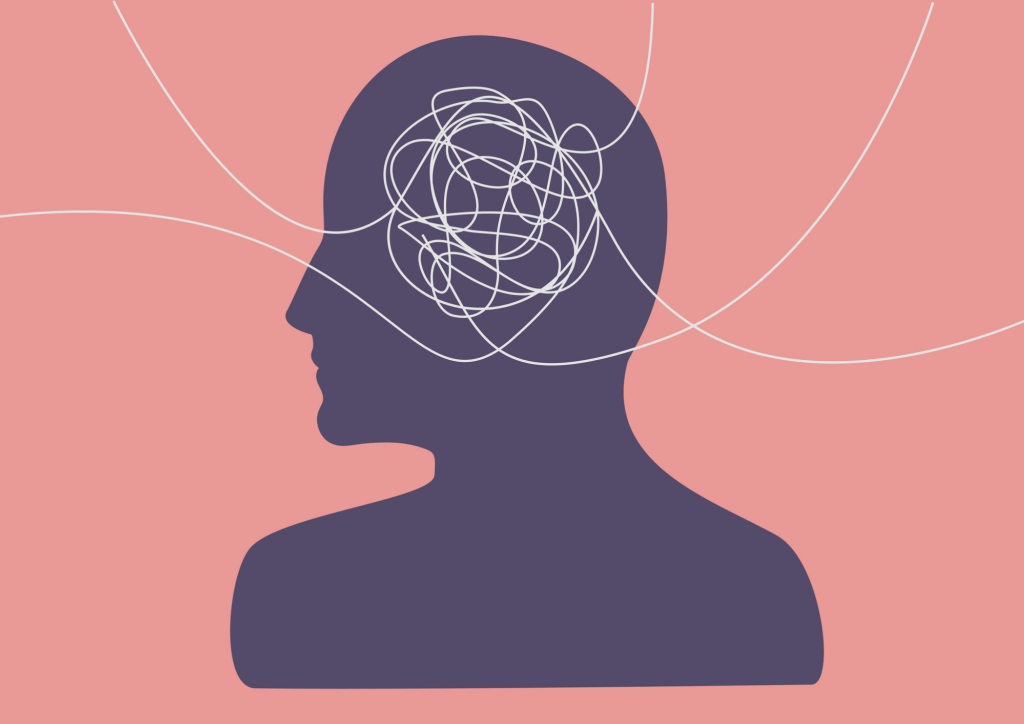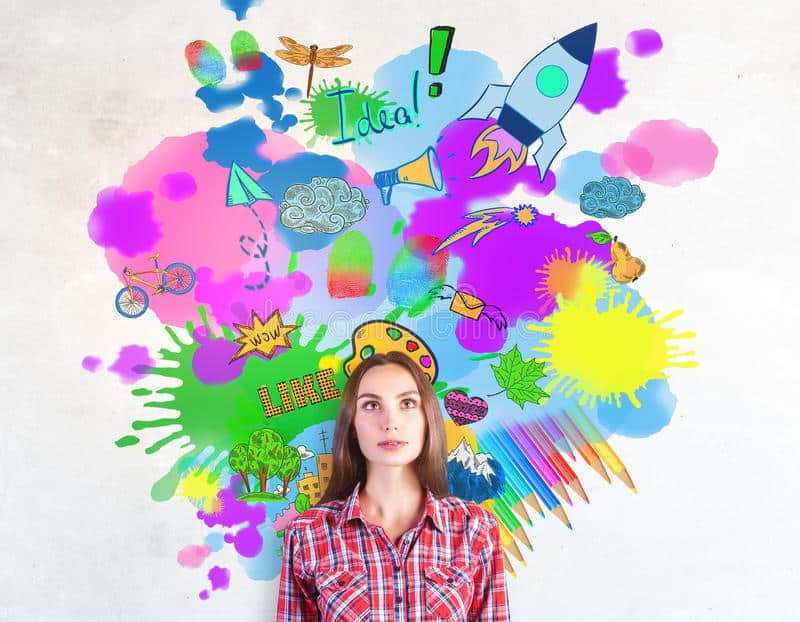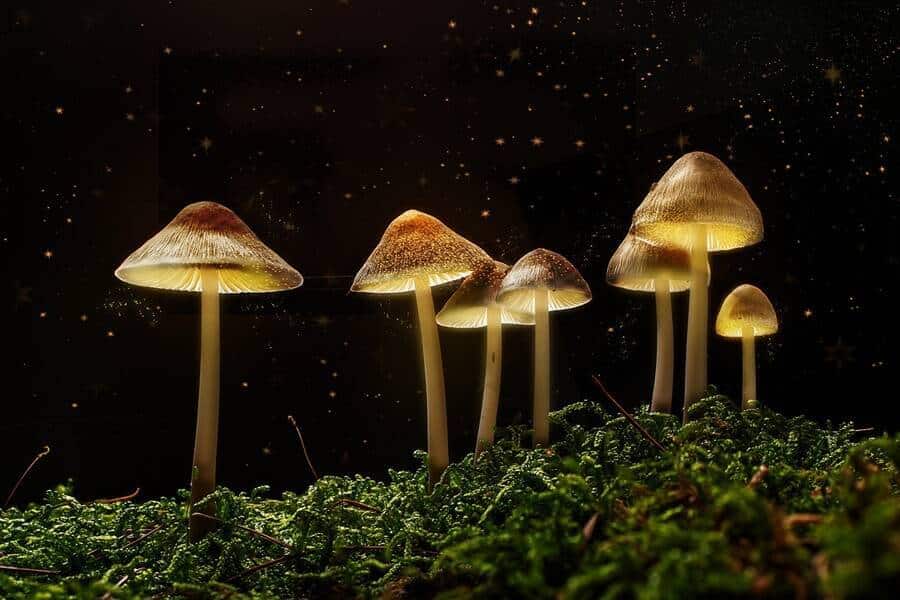Blog
Unlocking Nature’s Medicine: The Remarkable Healing Potential of Magic Mushrooms
Magic mushrooms, also known as psilocybin mushrooms, have long been revered for their mind-altering effects and spiritual significance. However, recent scientific research has shed light on their potential medicinal benefits. From alleviating mental health disorders to enhancing creativity and promoting emotional well-being, magic mushrooms are captivating the attention of researchers and medical professionals worldwide. In this article, we delve into the medicinal potential of magic mushrooms and explore how they may revolutionize the field of mental health and beyond.
Psilocybin and Mental Health:
A Promising Connection

The therapeutic potential of psilocybin, the psychoactive compound found in magic mushrooms, is increasingly gaining recognition in the field of mental health. Scientific studies have indicated that psilocybin-assisted therapy holds promise in the treatment of various mental health conditions, offering a new avenue for individuals who have not found relief through traditional treatments.
Research suggests that psilocybin may be effective in alleviating symptoms of depression, anxiety, and post-traumatic stress disorder (PTSD). Studies conducted at renowned institutions, such as Johns Hopkins University and Imperial College London, have yielded encouraging results, demonstrating the potential of magic mushrooms to bring about significant and enduring improvements in mental well-being.
Psilocybin-assisted therapy typically involves a carefully guided and supervised session, where the individual ingests a controlled dose of psilocybin in a supportive and therapeutic environment. The psychedelic experience induced by psilocybin allows individuals to explore their thoughts, emotions, and memories in a profoundly introspective and transformative manner.
One of the key aspects that makes psilocybin therapy unique is its ability to facilitate breakthroughs and provide individuals with a new perspective on their mental health challenges. The compound has been reported to promote a sense of openness, connectedness, and heightened self-awareness, which can aid in the exploration and resolution of deep-seated emotional issues.
Psilocybin has shown the potential in helping individuals develop a greater acceptance of their emotions and experiences, fostering a positive shift in their overall well-being. Many participants in psilocybin-assisted therapy have described a sense of profound connectedness with themselves, others, and the natural world, leading to feelings of empathy, compassion, and unity.
It is important to note that psilocybin-assisted therapy is typically conducted in a controlled and supervised setting, ensuring the physical and psychological safety of participants. The therapy involves thorough preparation and integration sessions to maximize the therapeutic benefits and minimize potential risks.
While further research is still needed to fully understand the mechanisms and long-term effects of psilocybin on mental health, the emerging evidence offers hope for individuals struggling with treatment-resistant mental health conditions. The promising results of early studies have paved the way for ongoing clinical trials and increased interest from mental health professionals, highlighting the potential of magic mushrooms in transforming mental health treatment for a more compassionate and effective approach.
Unlocking Creativity and Enhancing Cognitive Function

Magic mushrooms have garnered a reputation for their remarkable ability to unlock creativity and enhance cognitive function. Users frequently describe experiencing heightened creative insights, improved problem-solving abilities, and a broadened perspective on artistic endeavors. While these anecdotal accounts have long fascinated individuals, recent scientific research is shedding light on the mechanisms behind these effects.
Studies have indicated that psilocybin, the key psychoactive compound in magic mushrooms, interacts with various receptors in the brain, including the serotonin 2A receptor. This interaction leads to an increased release of serotonin and the activation of brain regions associated with creativity, such as the default mode network (DMN) and the prefrontal cortex.
The DMN, typically active during self-reflection and mind-wandering, becomes less active under the influence of psilocybin. This temporary shift in brain activity is believed to foster the breakdown of rigid thought patterns and allow for the emergence of novel connections and ideas. As a result, individuals often experience a surge of creative inspiration and a newfound ability to think outside the box.
Psilocybin has been shown to enhance cognitive flexibility, which is crucial for problem-solving and adaptability. It enables individuals to approach challenges from different angles and consider alternative solutions. This cognitive enhancement may extend beyond the psychedelic experience, leading to long-lasting improvements in creative thinking and problem-solving abilities.
It is worth noting that the effects of magic mushrooms on creativity and cognitive function are highly subjective and can vary depending on factors such as dosage, set, setting, and individual characteristics. Additionally, the integration of the psychedelic experience into one’s life, through reflection and application of insights gained, appears to play a significant role in the lasting benefits.
As research in this area continues to unfold, scientists are gaining a deeper understanding of how magic mushrooms impact the brain’s creative processes and cognitive functioning. By elucidating these mechanisms, researchers aim to harness the potential of magic mushrooms to develop novel therapies for creative blocks, cognitive disorders, and other conditions where enhanced cognitive function is desired.
While the potential benefits of magic mushrooms in unlocking creativity and enhancing cognitive function are intriguing, it is crucial to approach their use responsibly and with the guidance of professionals. Understanding the proper dosage, set, and setting is vital to ensuring a safe and meaningful experience. With further research and responsible exploration, magic mushrooms may pave the way for new insights into human creativity and cognition, offering valuable tools for personal growth and innovation.
Nurturing Emotional Well-being and Spiritual Growth
Magic mushrooms have captivated the attention of many individuals seeking profound emotional well-being and spiritual growth. Beyond their potential therapeutic effects on mental health and creativity, these mystical fungi have been reported to facilitate transformative experiences that delve into the depths of one’s emotions and spiritual consciousness.
Users of magic mushrooms often describe a sense of interconnectedness, an enhanced ability to empathize, and a deepened understanding of themselves and the world around them. The psychedelic experience induced by magic mushrooms can dissolve the boundaries between the self and others, leading to a profound sense of unity and connectedness with the universe.
Emotional healing is a significant aspect of the magic mushroom experience. Many individuals report cathartic releases of repressed emotions and traumatic experiences. The psychedelic journey can provide a safe and supportive space for exploring and processing deep-seated emotional wounds. By allowing individuals to confront and integrate these emotions, magic mushrooms may contribute to emotional healing, personal growth, and increased self-awareness.
Spiritual exploration is another profound facet of the magic mushroom experience. Users often describe transcendent states of consciousness, where they feel connected to something greater than themselves. These experiences can foster a sense of awe, reverence, and an expanded understanding of the nature of reality. Magic mushrooms have been used for centuries in traditional shamanic practices as a tool for spiritual insight and connection.
Through the lens of the psychedelic experience, individuals may gain valuable insights into their patterns of thinking, behavior, and belief systems. This heightened self-awareness and introspection can pave the way for personal growth and transformation. Magic mushrooms offer a unique opportunity for individuals to examine their lives from a different perspective, allowing them to cultivate a deeper understanding of themselves and their place in the world.
It is essential to approach the use of magic mushrooms for emotional well-being and spiritual growth with respect and caution. These experiences can be intense and profound, requiring a supportive and safe environment. Professional guidance and integration practices are crucial to help individuals make sense of their experiences and incorporate the insights gained into their daily lives.
The transformative potential of magic mushrooms in nurturing emotional well-being and spiritual growth is a fascinating subject of exploration. Through their ability to dissolve barriers, enhance empathy, and facilitate introspective journeys, magic mushrooms can open doors to emotional healing, personal growth, and spiritual insights. However, responsible use and integration are paramount to ensure the safety and well-being of individuals seeking these transformative experiences.
The Future of Medicine: Magic Mushrooms and Neuroplasticity
Emerging research in the field of neuroscience is uncovering the remarkable potential of magic mushrooms in promoting neuroplasticity, a fundamental process in the brain that allows it to rewire and adapt. Neuroplasticity plays a crucial role in learning, memory, and recovery from brain injuries. Recent studies have revealed that psilocybin, the active compound in magic mushrooms, may have the ability to enhance neuroplasticity and facilitate new connections in the brain.
This groundbreaking discovery has sparked excitement within the scientific community, as it opens up possibilities for treating neurodegenerative disorders such as Alzheimer’s disease and Parkinson’s disease. Neurodegenerative diseases are characterized by the progressive degeneration of neurons and their connections, leading to cognitive decline and motor impairments. Current treatment options for these conditions are limited, emphasizing the need for innovative approaches.
Psilocybin, with its unique mechanism of action, has shown promise in promoting the growth of new neurons and increasing the connectivity between brain regions. Studies conducted on animal models have demonstrated the potential of psilocybin to protect against neurodegeneration and improve cognitive function. These findings provide a glimmer of hope for individuals affected by neurodegenerative disorders and their families.
It is important to note that the research on magic mushrooms and neuroplasticity is still in its early stages, and further investigation is required to fully understand the mechanisms at play. Rigorous clinical trials and controlled studies are necessary to determine the safety, efficacy, and optimal dosing protocols for therapeutic use.
The potential implications of magic mushrooms in the field of medicine are vast. If ongoing research continues to demonstrate positive outcomes, we may witness a paradigm shift in the way we approach the treatment of neurodegenerative diseases. Magic mushrooms could offer a novel and effective therapeutic option that not only targets the symptoms but also promotes neuroregeneration and slows down the progression of these debilitating conditions.
It is essential to proceed with caution and ensure responsible use. The therapeutic application of magic mushrooms should only be conducted under the supervision of qualified healthcare professionals in controlled settings. Ethical considerations, legal frameworks, and comprehensive patient education must accompany any potential integration of magic mushrooms into medical practice.
As we navigate the future of medicine, the exploration of magic mushrooms’ role in promoting neuroplasticity stands as an exciting avenue of research. It holds the potential to transform the lives of millions of individuals affected by neurodegenerative disorders, offering renewed hope and improved quality of life. Through continued scientific inquiry and responsible application, magic mushrooms may revolutionize our approach to brain health and pave the way for innovative treatments in the years to come.
The Promising Future of Magic Mushrooms in Medicine
As scientific interest in magic mushrooms grows, so does our understanding of their medicinal potential. From their promising role in mental health treatment to their ability to enhance creativity, and emotional well-being, and promote neuroplasticity, magic mushrooms offer a new frontier in medicine. However, it is crucial to approach their use with caution, and respect, and under the guidance of medical professionals. With further research and responsible exploration, magic mushrooms may become a valuable tool in improving human health and well-being.


